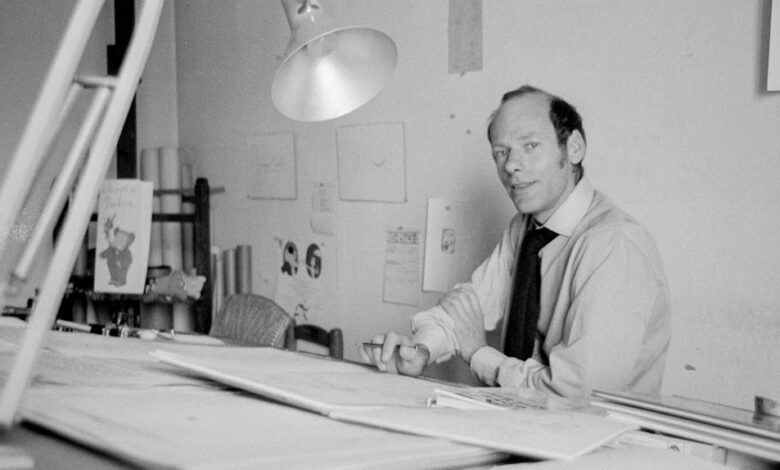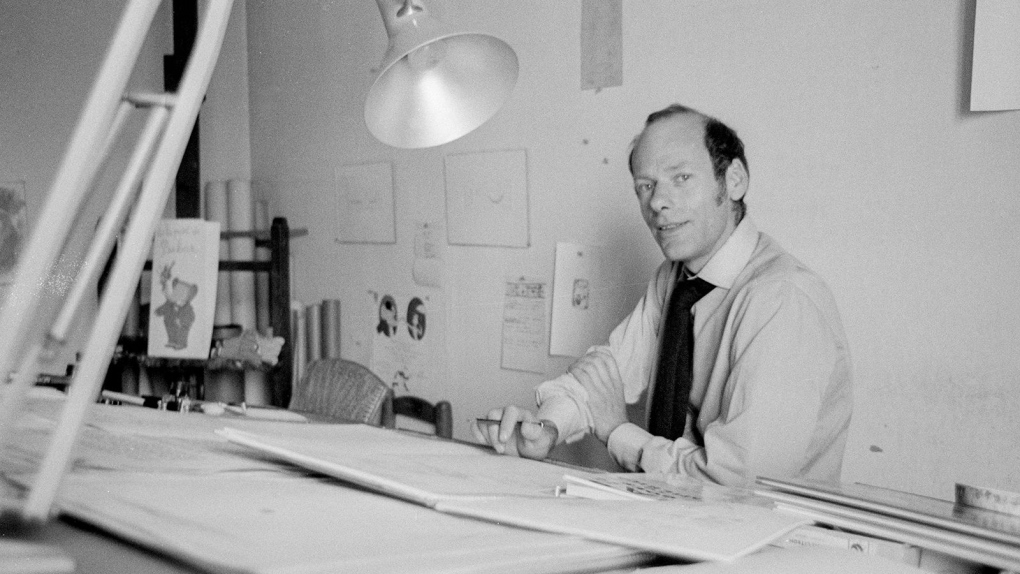‘Babar the Elephant’ author Laurent de Brunhoff dies aged 98

Writer and illustrator Laurent de Brunhoff, who continued his father’s legacy by producing dozens of original books for his “Babar the Elephant” series, has died aged 98.
De Brunhoff died at his home in Key West, Florida on Friday following a recent stroke, his wife, the critic and author Phyllis Rose, told CNN via email.
A citizen of both France and the U.S., de Brunhoff published more than 40 books featuring Babar, an impeccably well-dressed elephant dreamed up by his mother, Cécile, and brought to life by his illustrator father, Jean, in the 1930s.
“The start — (the) very start of Babar — was a bed(time) story from my mother,” de Brunhoff told CNN in an interview, aired in 2003. “And my brother and I loved the story. We went to my father’s studio and told him about it. He started to make a book for us. After the first book he made another one and another one. And he just discovered himself, I think.”
De Brunhoff was just 12 when his father died of tuberculosis, in 1937, having published five books for the series. These early titles see the green-suited Babar leave the jungle for Paris when his mother is shot by a hunter, before embarking on various adventures and being crowned king of the elephants.
A further two of his father’s books were published posthumously — and a then-teenage de Brunhoff colored and designed a cover illustration for the seventh and last of his Babar titles.
Sharing his father’s gift for illustration, de Brunhoff studied at the Académie de la Grande Chaumière art school in the French capital and worked as an abstract painter. In 1946, at the age of 21, he revived Babar with the first of his own books, “Babar’s Cousin: That Rascal Arthur.”
“I wanted Babar to live again,” he told CNN in 2003.
 Children’s author and illustrator Laurent de Brunhoff working at his home during a BBC television interview in 1969. (Malcolm Winton / Radio Times / Getty Images via CNN Newsource)
Children’s author and illustrator Laurent de Brunhoff working at his home during a BBC television interview in 1969. (Malcolm Winton / Radio Times / Getty Images via CNN Newsource)
Global phenomenon
In the decades after his father’s death, de Brunhoff introduced new characters and storylines, helping popularize the series and bring it to a global audience. His original tales saw Babar traveling around the world with his family, learning how to cook, taking up yoga and even visiting an alien planet. His most recent book for the series, “Babar’s Guide to Paris,” was published in 2017, more than 70 years after he first revived the character.
Despite capturing the imagination of generations of children, the series has been accused of being an allegory of — and justification for — French colonialism. Some of Jean de Brunhoff’s original illustrations and storylines have meanwhile been criticized for employing racist stereotypes.
In the 1980s, Chilean author Ariel Dorfman argued that Babar’s story — including his adoption of human clothes and mannerisms, and the subsequent depictions of him bringing the benefits of human civilization back to the jungle — represented the “fulfillment of the dominant countries’ colonial dream.”
“Babar slips progress into the jungle without upsetting the ecological balance, because (Jean) de Brunhoff omits all the plundering, racism, underdevelopment and misery from his story of the relationship between the two worlds,” Dorfman wrote in his 1983 book, “The Empire’s Old Clothes: What the Lone Ranger, Babar, and Other Innocent Heroes Do to Our Minds.”
When asked about Dorfman’s critique by National Geographic in 2014, de Brunhoff appeared to accept the idea that the series perpetuated myths about French colonialism.
“I think it’s right. Absolutely,” he told the magazine. “In some way, it’s a little embarrassing to see Babar fighting with Black people in Africa. My second book, ‘Babar’s Picnic,’ was also inspired by my father’s drawing. Some years later, I felt embarrassed about this book, and I asked the publisher to withdraw it.”
The series has been translated into numerous languages, and Babar was also adapted for TV on several occasions, beginning with a production for NBC in the late 1960s. A later series, “Babar,” premiered in 1989 on CBC in Canada and HBO in the US (HBO is owned by CNN’s parent company, Warner Bros. Discovery), while the more recent “Babar and the Adventures of Badou” aired on various channels globally, including Disney Junior, between 2010 and 2015.
Tributes to de Brunhoff flooded in over the weekend following news of his death. Writing to X, formerly Twitter, the Oscar-nominated writer, director and actor Whit Stillman described his Babar books as “exquisitely beautiful and charming.”
New York’s Mary Ryan Gallery, which represented de Brunhoff’s illustrations, said on Instagram that the writer and illustrator’s “love for Babar, his art and family story have touched millions across the globe.”




